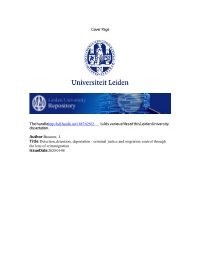By Brandon L. Garrett
Immigration laws are not just criminally enforced against individuals, but also corporations. For individuals, “crimmigration” is pervasive, as federal immigration prosecutions are a mass phenomenon. More than a third of the federal criminal docket—nearly 40,000 cases each year—con sists of prosecutions of persons charged with violations of immigration rules. In contrast, prosecutors rarely charge corporations, which are required to verify the citizenship status of employees. This Article sheds light on this unexplored area of corporate criminal law, including by presenting new empirical data. In the early 2000s, corporate immigration enforcement for the first time increased in prominence. During the Obama Administration, this trend accelerated, with a total of 101 corporate immigration prosecutions brought, and record penalties imposed. Under the Trump Administration so far, however, there have been just seven corporate immigration prosecutions, and the only large cases have been legacy matters from the prior Administration. This Article does not suggest that workplace immigration screening and enforcement, much less criminal enforcement, is desirable. Instead, this Article explores how corporate charging dynamics may exacerbate tensions inherent in criminalizing immigration in the workplace. This Article contrasts the mass prosecution of individuals, under strict zero-tolerance rules, with the leniency-oriented approach towards firms that carefully considers collateral consequences, to shed light on internally conflicted federal policy at the intersection of corporate and immigration law. Now that the federal criminal dockets have become dominated by immigration enforcement, the problem of “corporate crimmigration” deserves more urgent attention.
360 I. II. UNIVERSITY OF ILLINOIS LAW REVIEW TABLE OF CONTENTS [Vol. 2021]




